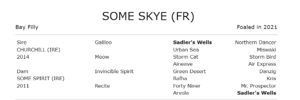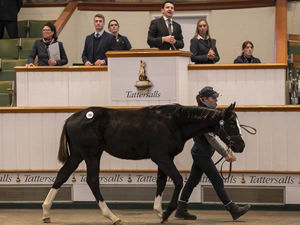In our dealings with clients, the eligibility and deductibility of home office expenses is never far away.
What better time to revisit this topic than now when many of us must work from home to stay “Covid compliant” and therefore many more business owners and employees will be eligible to claim them from tax year 2020 and beyond.
This has always been a popular topic in our practice as many horse businesses are not just run from a rural property, but from a dedicated area of a private home. For instance, many commercial breeders do not own rural properties. There are also many employees in this industry, whose job is itinerant in nature, who do not conduct their work activities from an employer’s workplace.
This article will cover off on many working scenarios where home office expenses are allowable and will also share details of a new shortcut method, offered by the ATO, that makes it easier for employees to claim home office expenses without the usual amount of supporting records.
HOME OFFICE EXPENSES – OVERVIEW
The deductibility of home office expenses will depend on the nature of the person’s activity. Cases will fall into two main types, being:
- Where the person uses his or her home or part of it as a workplace, i.e. works from a “place of business”; and
- Where the person is merely bringing work home from the office or other place of employment.
The ATO distinguishes these two types as having either the character of a "place of business" or of a private study. The former refers to cases where an area is set aside exclusively by a self-employed person for income producing activities, e.g. a doctor's surgery. It also includes the situation where an employer provides no other work location for an employee. The latter refers to the situation where an area of the home is simply used in connection with income producing activities, i.e. where working at home is a matter of convenience.
What is a “place of business”?
ATO rulings outline the following factors which may indicate that the area within the home has the character of a "place of business". None of them alone, or in combination, will conclusively determine that the area constitutes a place of business, but they will be considered along with other relevant factors.
The factors are:
- the area is clearly identifiable as a place of business;
- the area is not readily suitable or adaptable for use for private or domestic purposes in association with the home generally;
- the area is used exclusively or almost exclusively for carrying on a business; or
- the area is used regularly for visits of clients or customers.
Where there is “no alternative place of business”
In the situation where it is necessary to work from home because there is no alternative place of business, the area will only be considered a place of business if:
- it is a requirement inherent in the nature of the person's activities that the person needs a place of business;
- the person's circumstances are such that there is no alternative place of business and it was necessary to work from home; and
- the area of the home is used exclusively or almost exclusively for income producing purposes.
This principle allows, for example, a company to claim home office expenses where its employee directors do not have an alternative place of business, i.e. does not own or lease an office.
Private “home study” used as a “matter of convenience”
The more common case is that where a private study of is used as a matter of convenience.
The ATO notes the following examples:
- a barrister who reads client briefs at home;
- a teacher who prepares lessons or marks assignments at home; and
- an insurance agent who maintains client files and occasionally interviews a client in his or her home office.
N.B. In April 2020, the ATO announced a new method for claiming expenses for working from home, via a home study, due to the coronavirus pandemic. Using this "shortcut" method, you can claim a tax deduction of 80 cents for each hour worked from home between March 1 2020 and June 30 2020.
Categories of “home office expenses”
I have noted above the circumstances where home office expenses can be claimed, the next question is what type of expenses can be claimed in these scenarios.
Home office expenses fall into two categories:
- occupancy expenses; and
- running expenses.
If a “place of business” – “occupancy” and “running” can be claimed
If the office is a "place of business" both categories may be claimed; but if it is simply a home study then only the running expenses may be claimed. Occupancy expenses are those which relate to ownership or use of the home and, thus, are fixed in nature. These include rent, mortgage interest, municipal and water rates, house insurance premiums, and repairs.
Running expenses are those relating to use of the facilities within the home, e.g. for a home study. They include electricity for lighting, heating and cooling, cleaning costs, depreciation of professional library, equipment, furniture and furnishings, and the cost of repairs of these latter items.
These expenses are only claimable to the extent that they are additional expenses incurred as a result of income producing activities. For discussion on the apportionment of home office expenses see below.
Examples of occupancy expenses denied for a “home study”
The courts have, in a series of cases noted below, examined the deductibility of the expenses relating to the house itself, namely, mortgage interests, rates, rent and insurance and has held that these are not allowable deductions for a “home study”. As noted above, only running expenses can be claimed in the home study scenario.
Case 1 – it was held that expenses incurred in providing light and heating for the person exclusively while engaged in work from which he derives income would be deductible but not if it was also provided for the members of the person's family.
Case 2 - the person and his wife purchased a house in their family trust. The person, a barrister, occupied one room as a study (not a place of business). It was further agreed that he could occupy the premises as a residence provided he paid all outgoings. The person claimed a deduction for the payment made to the trust for the use of the home office. The person's claim was ultimately denied by the courts. The court indicated that though the outgoings satisfied general deductibility rules, they should still be excluded as being of a "domestic" nature.
Case 3 - the person, a barrister, was similarly denied a claim for a proportion of mortgage interest, rates and insurance premiums referable to a home study.
Case 4 - where the person chooses to work at home in a study rather than at his place of business, this business use is not sufficient to change the private or domestic nature of the dwelling. This was the case where a farmer conducted his farming business at a separate place to his private residence. Accordingly, time spent on farm business in his home study did not allow for any deductions for rates or mortgage interest.
Examples of occupancy expenses for a “place of business”
Case 5 - Self-employed persons have been allowed deductions for rent, interest and the like on the basis that the home area was a “place of business”. For example, a full-time script writer wrote her scripts in a room in her flat. She was allowed a deduction for part of the rent.
Case 6 - A deduction was allowed for municipal rates and mortgage interest on a floor area basis and for electricity and telephone on a usage basis, to a person photogrammetrist. The deduction was granted on the basis that the person conducted his business solely from his home.
Apportioning “place of business” occupancy expenses
The ATO discusses methods of apportionment of occupancy expenses.
In most cases home office expenses should be apportioned on a floor area basis. Where the home office is only used for part of the year, expenses should be apportioned using both a floor area and a time basis. In some circumstances the ATO will accept a bona fide estimate of the percentage of business use. One such situation is for the use of depreciable items such as professional library or equipment. Another circumstance is when apportioning heating/cooling and lighting expenses. A person, e.g. a teacher, using a room for income producing purposes at the same time as other family members, cannot claim such expenses, because they are not incurred exclusively for the taxpayer's benefit. If the taxpayer uses the area at a different time to other members of the family, then the power expenses relating to that area, for that period, are claimable.
Beware - Capital Gains Tax implications if claiming a “place of business”
In conclusion, it is important to note that there may be capital gains tax implications where Home Office occupancy expenses are claimed in relation to a person’s private residence.
Generally, capital gains tax does not apply to a taxpayer's private residence. However, the capital gains provisions deem that a capital gain (or loss) accrues to the extent to which a private residence disposed of was also used for the purpose of earning assessable income during the period of ownership.
As a rule of thumb, it can be expected that where occupancy expenses are claimed for an area of a home which is a "place of business", the capital gains provisions will apply. In some circumstances, claiming of Home Office occupancy expenses will not be worthwhile if the amount of any capital gain exceeds the tax benefits from claiming such expenses.
Please do not hesitate to contact the writer if you wish for me to clarify or expand on any of the matters raised in this article.
PAUL CARRAZZO CA
CARRAZZO CONSULTING PTY LTD
801 Glenferrie Road, Hawthorn, VIC, 3122
TEL: (03) 9982 1000
FAX: (03) 9329 8355
MOB: 0417 549 347
E-mail: paul.carrazzo@carrazzo.com.au or team@carrazzo.com.au
Web: www.carrazzo.com.au










